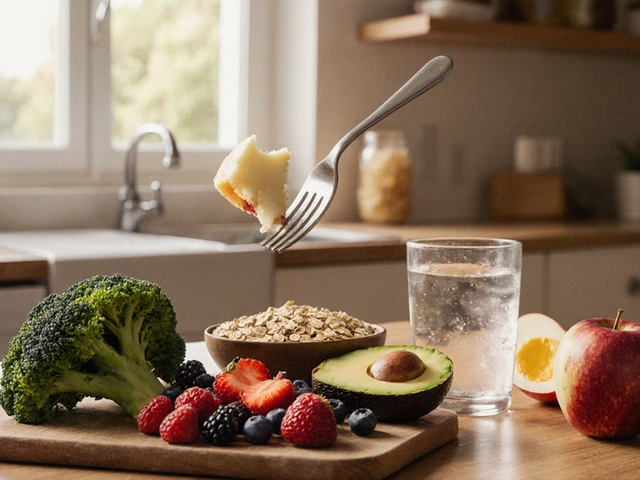Introduction to the Wonders of Biofeedback
So, there's been quite a buzz in the mental health field recently about something called biofeedback. Sounds interesting, right? Well, let me tell you, it's as fascinating as it sounds, ladies and gents! Picture this— being able to listen to what your body is saying and responding to it accordingly, to enhance your mental health. It's not science fiction. It's called 'biofeedback', and it's revolutionizing how we approach mental health treatment.
What is Biofeedback and How it Works?
You might be tipping your head, wondering "what exactly is biofeedback, Fiona?". Well, in simple terms, biofeedback is a type of therapy that uses sensors and other instruments to measure biological information (or 'feedback') such as brain waves, skin temperature, heart rate, etc. This information is then "fed back" to the person in real-time, creating awareness about these usually unconscious physiological processes.
This heightened awareness allows individuals the unique opportunity to have control over their bodily processes that seem automatic, enable them to improve mental and physical wellbeing. Quite rad, isn't it? It's like being the captain of your own ship, navigating the wave-storms of anxiety and clouds of depression with aplomb!
The Real-Life Impact of Biofeedback
Now, in case you're thinking - 'Oh! It’s one of those fad treatments in psychiatry, come on, Fiona!', let me assure you, biofeedback is as real as my Siamese cat, Stella! In fact, the American Psychological Association has recognized its potential. It reiterates biofeedback's effectiveness for several conditions including migraines, chronic pain, and yes, you guessed it - mental health disorders!
A study recently found that when compared to other relaxation techniques, biofeedback popped out as a more effective method in reducing symptoms of mental health disorders such as anxiety and depression. Now that's some good news for us, right?
Different Types of Biofeedback
Did you know that there are several types of biofeedback? Yes, darling! There's neural biofeedback that maps your brain waves, thermal biofeedback that measures skin temperature, and muscular biofeedback that observes muscle tension. There's also cardiovascular biofeedback tracking heart rate and respiratory biofeedback monitoring your breathing rhythms. So many options to choose from, quite akin to selecting your favorite flavor in an ice-cream shop, isn't it?
Implementing Biofeedback into Your Life
You may wonder, "how do I use biofeedback in my everyday life?". I'm here to guide you, darlings. The best way to begin is often by seeking a trained professional. They'll attach the non-invasive sensors to you, which will monitor and present the data onto a computer screen before your eyes - as simple as that.
Don't panic though – these sensors aren’t going to invade your space like a clingy suitor at a bar. They're very discrete and comfortable, in fact. You won't feel anything other than the soothing stream of insights flowing into the crevices of your self-awareness.
Demystifying Common Myths about Biofeedback
Like any revolutionary approach, biofeedback has its share of myths. Let's debunk a few. Myth 1: Biofeedback is invasive. Nope, the sensors used are entirely non-invasive. Myth 2: Biofeedback is just for mental health. Again, a hard no! It's used for a multitude of health conditions, from migraines to high blood pressure. Biofeedback, like our beloved Stella, is multi-talented and can cater to various needs. So let's not box it, okay?
The Unparalleled Benefits of Biofeedback
We've uncovered what biofeedback is, how it works, it’s types, and how one can benefit from it. As a woman navigating the labyrinth of life's stresses (remember trying to find a plumber on Sunday afternoon?), I can testify to the path-blazing benefits of biofeedback.
It's empowering, invigorating, and most notably, it's a natural and drug-free approach. So it's befitting for those who might be reluctant about medication-intense treatments. All in all, my friends, the benefits of biofeedback are as profound as a hearty chuckle after a long tiring day!
Concluding Thoughts on Biofeedback
So there it is, folks, your introductory guide to the revolutionizing world of biofeedback. Remember, every journey begins with a single step. So, whether you're someone who's struggled with chronic pain, or anxiety and depression, or someone who's simply interested in levelling up their self-awareness, biofeedback could be the stepping stone on your path of wellness.
As I sign off and retreat into the loving purrs of my cat, Stella, here’s a mantra for you to remember – Your body has a voice, let biofeedback be your hearing aid. It's about time we take the wheel of our mind-body vehicle, don't you think?






